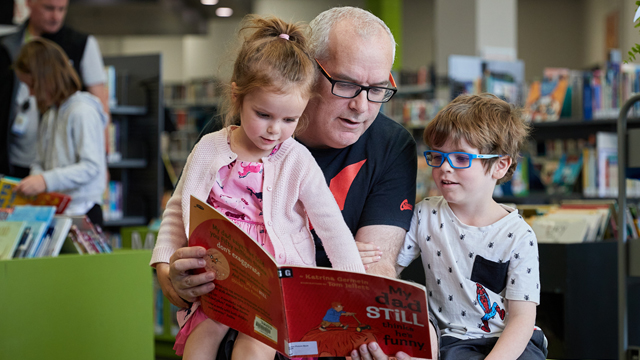The Reading Together Program®
The Reading Together Program was developed by Jeanne Biddulph of the Biddulph Education Trust as part of a research project for the University of Canterbury. The programme is designed to teach parents and whaanau how to help their child learn to read, build strong literacy skills and to set a foundation for future readers.
The programme is used by schools, early childhood education services, libraries, and home schoolers across New Zealand to assist with the teaching of reading. The programme involves a series of workshops that teach simple strategies for making reading time a pleasure rather than one of anxiety, stress and, sometimes, anger.
You can ask at your school or public library for information on workshops. You can also find more information and research on the National Library website or Reading Together® website from the Biddulph Group who own the Reading Together trademark.
Reading at Home
Read to your children and read with your teenagers at home! Try to set aside a time devoted to shared reading every day and make it a that time you enjoy as a family.
-
For preschoolers, use nursery rhymes and songs to their boost language development and imagination. Use lots of expression on your face, different voices and sound effects.
-
Let them turn the pages and point to words and pictures while you’re reading.
-
Let your children see you reading, and enjoying it! Encourage family members to talk about what they read and show that reading relates to everyday life such as reading a newspaper, cookbook, and even marketing flyers count as reading material.
-
Take your kids to the library and help them choose books. Suggest books that are related to their current interests.
Fun things that build literacy skills
-
Encourage your children to talk about their experiences. Really listen to them.
-
Write stories together. These could be about daily life or special memories which kids can illustrate and colour.
-
When you are sharing a story, encourage your child to guess what will happen at various points. Let them ask you questions about the book.
-
Make scrapbooks about your special memories and your family.
-
Play word games such as "I spy". Spot the difference games are also great for concentration and brain development.
-
Write a shopping list together. Let your kids find the items to tick off the list. You can do this at home as well as the supermarket.

